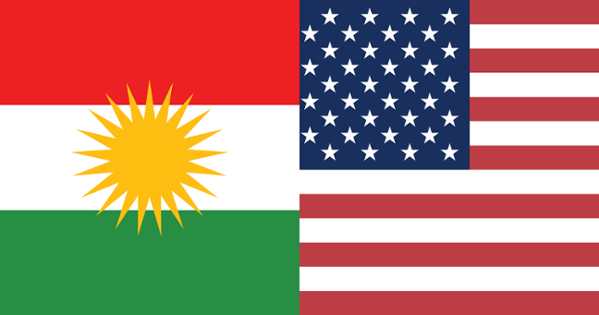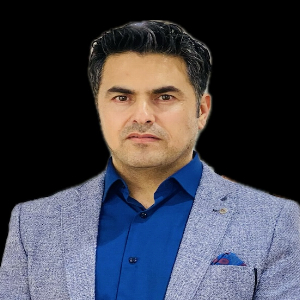It's Time for a Kurdistan-Specific Travel Advisory From the US

On March 31, Tammy Bruce, spokesperson for the U.S. Department of State, announced that the United States will soon inaugurate one of its largest diplomatic facilities in Erbil. Set to open later this year, this new consulate underscores Washington’s enduring commitment to its partnership with the Kurdistan Regional Government (KRG). However, since 2003, the State Department has maintained a blanket “Do Not Travel” advisory for the whole of Iraq, an approach that conflates the Kurdistan Region’s notable security and political stability with the ongoing challenges in other parts of Iraq.
In light of this significant investment and the launch of the world’s largest U.S. consulate in Erbil, a carefully calibrated revision of the travel advisory, one that recognizes the Kurdistan Region’s exceptional safety and strategic value, would both reinforce America’s stated objectives and enable broader American opportunities, both economic and diplomatic. Indeed, the establishment of a major consular presence in Erbil represents a deliberate and constructive realignment of U.S. diplomatic resources toward a region that has, for more than two decades, upheld institutions and norms closely aligned with Western governance standards.
The new facility will accommodate an expanded team of diplomats, security personnel, and support staff, thereby enhancing political dialogue, consular services, and developmental cooperation. Yet, the continuing application of a uniform “Do Not Travel” advisory to the entire country inadvertently discourages American investors, scholars, and tourists from engaging with a region that has demonstrated resilience and reliability. This issue is especially evident in academic circles. As a faculty member at the School of International Service at American University, I have observed the procedural challenges in securing travel approvals. Student field research, conference attendance, and cultural exchanges in the Kurdistan Region are deferred or declined on the basis of the blanket advisory. Similar experiences are reported by peers at other U.S. institutions, underscoring how current policy unintentionally hinders educational collaboration and impedes the development of enduring people‑to‑people ties. American academic institutions follow State Department travel polices and health insurance companies automatically disqualify insurers who travel to “Do Not Travel” locations designated by the State Department.
Economically, the Kurdistan Region holds considerable potential in sectors such as energy, tourism, and technology. Its oil reserves have attracted reputable international firms, while its rich historical sites, such as the Citadel of Erbil and the Shanidar Cave, offer unique cultural and adventure‑tourism opportunities. However, American businesses often face prohibitive insurance costs and restrictive corporate travel policies that categorize the entire country as uniformly high‑risk. This situation diverts prospective investors to European or regional competitors, diminishing U.S. influence and economic participation in a promising market.
Diplomatically, the decision to open a substantial consulate in Erbil should be complemented by a travel advisory that accurately reflects the region’s security environment. A region‑specific advisory—perhaps under a designation such as “Exercise Increased Caution”—would align U.S. policy with established precedents. The State Department already issues differentiated advisories for China’s provinces, Mexico’s states, and India’s regions, acknowledging sub‑national variations in safety.
When I pressed the State Department under the previous administration for an explanation, I was offered general explanations centred on criminal groups, terrorist activity and civil-unrest, with no specific focus on the Kurdistan Region. Follow‑up queries elicited vague references to a “One Iraq” policy. Yet the department already issues separate advisories for China’s provinces, for Mexico’s border states and for India’s northeast. Some may contend that a unified advisory upholds the “One Iraq” policy, reinforcing national cohesion. But a Kurdistan-specific advisory is immaterial to this as it is based purely on the stability and security that Kurdistan enjoys. It represents unnecessary self-inflicted harm by the United States.
Kurdish peshmerga forces have been steadfast partners in counter‑ISIS operations; Kurdish intelligence services have provided invaluable insights; and the KRG has maintained a relatively inclusive, multi‑ethnic governance model. By differentiating the Kurdistan Region in its travel guidance, Washington would signal appreciation for these contributions and encourage continued collaboration. The United Kingdom’s Foreign, Commonwealth & Development Office (FCDO) offers a useful example. The FCDO advises against travel to Iraq at large but explicitly exempts the Kurdistan Region, acknowledging its comparative safety. This nuanced approach has tangible effects: it facilitates tourism, investment, and academic exchange, while preserving appropriate caution for more volatile areas. A similar recalibration by the U.S. would reinforce bilateral cooperation and support the KRG’s efforts to diversify its economy beyond oil revenues.
Immediate benefits of a revised advisory would include the resumption of study‑abroad programs in Erbil, providing students with firsthand exposure to Kurdish society, politics, and history. It gives the U.S. and other energy firms operating in the Kurdistan Region more leverage to negotiate their production‑sharing agreements with Baghdad with greater confidence, contributing to regional development and energy security. Tour operators could design cultural‑heritage and adventure‑travel itineraries that showcase Kurdistan’s archaeological treasures and scenic mountain landscapes, thereby fostering people‑to‑people connections that underpin long‑term stability and economic growth.
Moreover, a tailored advisory would underscore U.S. support for governance models that prize inclusivity. The Kurdistan Region’s institutions—its parliament, judiciary, and security forces—operate with a degree of transparency and accountability that, while not without challenges, surpasses standards in the rest of Iraq. Its media environment, though evolving, accommodates a plurality of viewpoints. Recognizing these achievements in the travel guidance would reaffirm America’s commitment to supporting constructive actors in the Middle East.
Understandably, some observers may voice concerns that easing travel restrictions could be misinterpreted or exploited. However, the Kurdistan Region’s track record is persuasive: Erbil has hosted numerous foreign consulates, international NGOs, humanitarian missions, and private investors with minimal security incidents. The upgraded international airport maintains regular flights to Europe, the Gulf and Asia, and highways are patrolled by highly‑trained security forces who have an exemplary track-record. These factors collectively attest to the region’s capacity to manage risk effectively.
The forthcoming inauguration of the Erbil consulate presents an opportune moment for the State Department to harmonize its advisory policy with its diplomatic priorities. A joint announcement, marking both the opening of the consulate and the issuance of a region‑specific travel advisory, would demonstrate coherence in U.S. foreign policy. Such a statement could articulate that, in recognition of the Kurdistan Region’s distinct security profile and strategic importance, the advisory has been reclassified accordingly.
Furthermore, this is about aligning policy with principle. It is about ensuring that American diplomats, scholars, entrepreneurs and tourists can travel to Erbil with confidence, unencumbered by advisories that do not reflect the current reality. It is about acknowledging the KRG’s role as a stabilizing force in a complex region. And it is about unlocking the economic, academic and diplomatic opportunities that await in a land defined by its ancient heritage, its resilient people and its aspirations for a secure and prosperous future.
Washington now stands at a pivotal moment: it can change that. The inauguration of one of America’s largest consulates in Erbil sends a powerful signal of its steadfast partnership with Kurds. Yet, infrastructure alone will not suffice. A revised travel advisory would be an equally powerful testament that Washington’s policies are both principled, practical, and evidence based. Only Secretary of State Marco Rubio has the power to amend the travel advisory. In fact, the opportunity could not be riper for Mr. Rubio to carve out an exception in the travel advisory—a small change in wording, perhaps, but one with potentially large consequences for peace and prosperity, and for amplifying American influence.
This article is republished from MEPS Insights. Read the original article.

About the Author
Yerevan Saeed is a non-resident fellow at the Arab Gulf States Institute in Washington as well as the Barzani Scholar In-Residence and director of the Global Kurdish Initiative for Peace at the School of International Service of American University. He is a TEDx speaker and former lecturer at the University of Kurdistan Hewler. He received his PhD from the Carter School for Peace and Conflict Resolution at George Mason University.